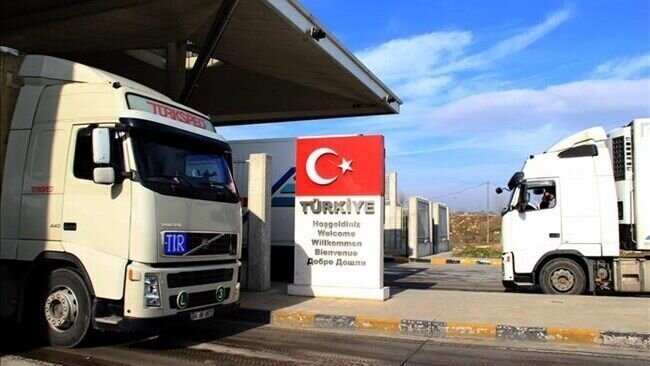Turkey’s central bank hikes interest rate to 30%
- The move is a 500-basis point jump from the month prior, as Ankara continues to battle double-digit inflation.
- The central bank decision follows a series of rate hikes that have been painful for Turks, as the country aims to turn around several years of skyrocketing inflation and dramatically weakened currency.
- The lira is down 30% against the dollar year to date and has lost 78% of its value against the greenback in the last five years.
Turkey’s Taksim Square, with the figure of Kemal Ataturk, the first president, and the Turkish flag in the background.
Sopa Images | Lightrocket | Getty Images
Turkey’s central bank hiked its key interest rate to 30% on Thursday, a 500-basis point jump from 25%, as Ankara continues to battle double-digit inflation.
The Turkish lira weakened slightly to 27.06 against the dollar on the news, with the greenback up 0.3% against the local currency at 2 p.m. in Istanbul.
The central bank decision follows a series of rate hikes that have been painful for Turks, as the country aims to turn around several years of skyrocketing inflation and a dramatically weakened currency — in large part the result of stubbornly loose monetary policy by the Ankara government.
The lira is down 30% against the dollar year to date and has lost 78% of its value against the greenback in the last five years.
In June, Turkey lifted its key interest rate for the first time in more than two years, after Turkish President Recep Tayyip Erdogan appointed policymakers who had vowed to implement economic orthodoxy to turn around the inflation picture.
Traditional economic orthodoxy holds that rates must be raised to cool inflation, but Erdogan — a self-declared “enemy” of interest rates who calls the tool “the mother of all evil” — vocally espoused a strategy of lowering rates instead.
Turkey steadily lowered its policy rate from 19% in late 2021 to 8.5% last March, as inflation ballooned, breaching 80% in late 2022 and easing to just under 40% in June.
After starting on its hiking path, the central bank in July stated its aim to get inflation down to 5% in the medium term — an ambitious forecast, as Turkey’s annual inflation jumped to near 59% in August. Ankara now expects annual inflation to reach 65% at the end of 2023, up from a forecast of 24.9% a year ago.
Economic analysts reacted positively to the latest interest rate decision out of Turkey.
Liam Peach, a senior emerging markets economist at London-based Capital Economics, said the move provided “further encouragement about policymakers’ commitment to tackling the inflation problem” and that the central bank is “now doing what many investors had hoped they would by raising interest rates sharply and taking a more serious stance against inflation.”
He added, “All of this is helping to maintain investor optimism in the policy shift and keeping Turkey’s sovereign dollar bond spreads near multi-year lows.”
Turkey’s President Recep Tayyip Erdogan has named former economy chief Mehmet Simsek as his new treasury and finance minister.
Source: World Economic Forum
Timothy Ash, an emerging markets sovereign strategist at BlueBay Asset Management, commented in an email note that this was a “solid move by the CBRT. Let’s not forget they have now hiked rates by a cumulative 2150bps, albeit with inflation at 65%, real rates are still very heavily negative.”
After underwhelming rate increases in June and July, the central bank surprised markets in August with a larger-than-expected hike of 750 basis points, from 17% to 25%. The Thursday move demonstrates a continuation of that path.
“A lot more tightening still needs to be delivered, though,” Peach wrote in an analyst report following the news, adding that Capital Economics expects rates to rise to at least 35% by the end of the year.
Ash referenced Turkish Finance Minister Mehmet Simsek, saying that the minister and his team “would argue that if you take fiscal tightening, macro prudential measures and rate hikes the combined policy tightening will slow growth and begin to bring inflation lower and this will finally begin to make holding lira worthwhile.”
But Ash stressed, “It’s a tough slog for sure.”



